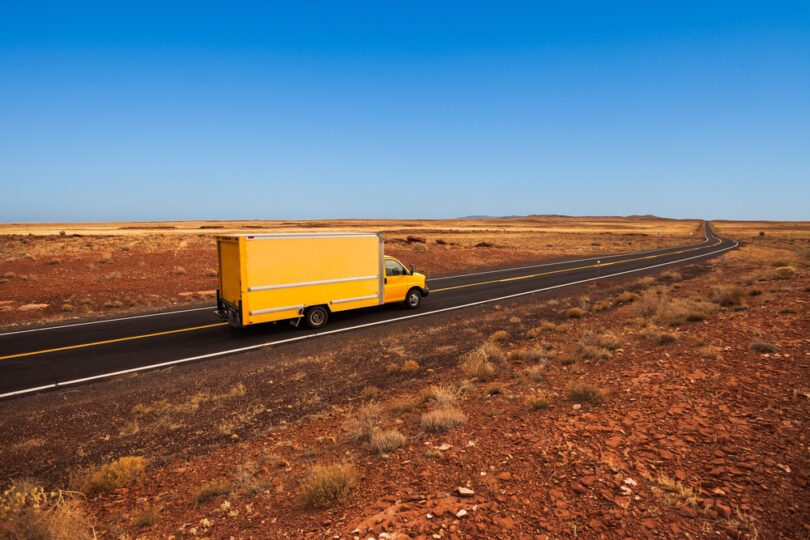Are you chasing the sun? Looking for better winter skiing? Need a change of scenery? Whatever the reason, an out-of-state move is a big deal. If you’re ready to start planning your relocation to another locale, it might feel a bit overwhelming.
Don’t worry – an out-of-state move doesn’t have to be complicated. We put together a few tips to help make it easy on you.
1. Plan Ahead
The best place to start in your out-of-state relocation is by planning ahead. Pre-planning your move will not only ensure you don’t forget anything in the process but that you’re not scrambling for anything at the last minute.

Before you get started, make a list of all of the things you’ll need to accomplish along the way and give yourself due dates. Treat your relocation as a project planning exercise, look at the big picture, and break it down into smaller steps.
2. Understand Tax Implications
Maybe you need to adjust to a new climate or a new pace of life in your relocation. You may even need to get used to new cuisines if you’re moving to an entirely different part of the country. Even if you’re only moving one state away, crossing state lines means a few practicalities are bound to change.
Taxes vary from state to state, including rates and which ones you are even responsible for. This may be a positive thing as perhaps you’ll lower your yearly obligation. It may, however, mean you’ll owe more money to Uncle Sam, and you should make sure you’re prepared.
Review the taxes in your new state to start, and understand how things work. Some states – like Arizona or Washington – don’t have a state income tax, but you’ll still be responsible for federal taxes. Bear in mind that you’ll be responsible for tax in both states if you’re moving mid-year, so keep good records in this transition.
3. Downsize
It’s not all about adopting a totally minimalist lifestyle. If Marie Kondo isn’t an inspiration for you, consider whether the things you’re taking are worth the space, effort, and cost. Long-distance movers will base their prices, in part, on the weight of your belongings. Are you up for paying more for boxes full of clothes that don’t fit or those beanie babies you’re hoping become worth something again?

Do yourself a favor and lighten your load. You’ll be happy not to unpack boxes full of stuff you don’t want, need, or use.
4. Line Up Housing
You may feel like you’ll arrive, and house hunting will be a breeze, but wouldn’t it be nicer to come and just relax in your new location? Don’t add undue pressure to yourself by needing to jump right into the real estate market on the other side.
Do some research on neighborhoods and decide where you’d want to live. Consider your lifestyle and look for a place that ticks the necessary boxes. Need parking? Good schools? Walkability? Nightlife? Narrow it down and line up a home before you arrive.
5. Pack Differently
When you’re moving down the street, you can get away with just throwing things together haphazardly and stuffing things like laundry hampers and suitcases to get you there. When you’re moving long distances, you need to care more about your packing.
Pack thoughtfully. Remember, your things will be in a truck and potentially moving through varying terrains and long distances. Pack your breakables carefully and stay organized. Ensure you label your boxes well and pack mindfully. You’ll likely be without your things for days or even weeks, so keep that in mind.
6. Separate Valuables
There are certain things that you may not want to send on the moving truck. Family heirlooms, prescriptions, one-of-a-kind items, and your laptop should come with you. Of course, you’ll hire a trusted mover, but don’t leave anything to chance. There are times that things get broken, or boxes get misplaced. Take your most valuable items yourself, and put your mind at ease.
7. Don’t Forget the Essentials

Being without your things for an extended period means you’ll need particular items in order to get by. Consider your essentials and pack a box or suitcase to take with you.
- Prescription medications
- Important paperwork
- School, military, vaccination, tax records
- Linens
- Clothes
- Toiletries
Packing an essentials box is a great idea no matter the distance you’re moving. When you’re going interstate, it’s crucial as you won’t have access to your belongings for a while. An essentials box for local moves should include everything you need to feel at home on your first night or two. For long distances, it should sustain you for a while longer as you wait for your belongings to arrive.
8. Get Your Kids Involved
Moving makes a big impact on kids and they may feel shaken up at the thought. If your kids are still young, chances are their perception of the world is pretty attached to the home and neighborhood you live in – after all, they’ve spent all or much of their life there.
Don’t take for granted that they’ll be along for the ride, or that it’s easy for them simply because they haven’t said anything contrary. Get your kids involved and support them along the way. Allow time for meaningful goodbyes – to people, and places. If you’ve never been to your new hometown together, talk about what it’s like to get them excited. Make plans for things to do after arriving and places to explore.
If they’re old enough, get your kids involved in sorting and packing, starting with their belongings. Let them choose which toys to keep and which to get rid of. Maybe you’d like to plan to donate their unwanted toys and you can get them involved in the act of giving to someone in need. Ultimately, the more you can get your kids involved and communicate with them, the easier it will be for them to adjust.
9. Have a Backup Fund
No matter how much you plan, things happen. Things such as weather and other unforeseen circumstances may cause delays in your truck delivery. Whatever the case, you may need to cover the cost of things unexpectedly.

Don’t arrange your move by budgeting to the dollar, as you may end up with extra costs. Always overestimate your budget and save a small fund on the side… just in case.
10. Hire Experts
When it comes to all of the moving parts (no pun intended) of relocating to a new state, it likely feels pretty overwhelming for you. For the experts, it’s another day’s work. Hiring a trusted, reliable, experienced team will ensure things go smoothly.
If you involve your mover at an early stage, they can lend their expertise in helping you plan. Your mover will likely tell you things you didn’t think about. The earlier you hire a mover, the better. Long-distance moves require scheduling as the movers – and the truck – will be on the road for a number of days.








